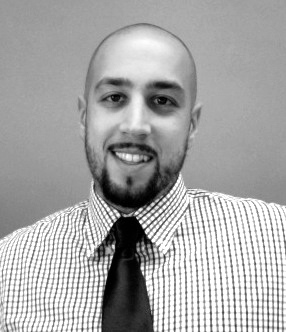We consulted Dr. Meghelli and talked about the Anacostia Community Museum on January 11th.

He was dressed more casually for our meeting- an important hint to his personality and way of doing things!
As he emphasized while introducing himself, he’s personally very invested in community-based work- for example, collaborating with the DC public library on “pop-up” exhibits (perfect for reaching wider audiences in an educational setting!) and working in Food For the People, a food justice organization fighting food access and food worker labor/rights issues. Dr. Meghelli’s somehow laidback-while-enthusiastic demeanor certainly suggested that he would be good at working with people more hands-on than always in the bowels of a museum building.
We then listened to Dr. Meghelli’s presentation of the museum’s history and purpose. While I believe I treaded many of the same basic facts, of course he mentioned some things I had not known. The ACM used to be known as the Anacostia Neighborhood Museum. Curiously, I had found out the museum had been renamed, but didn’t find its original name before attending the consultation! The museum obtains a large portion of its funding from the government- commonly, Smithsonian museums are about 2/3rds federally funded. The rest is from private donors and plenty of independent fundraising. When I asked about local workers vs. federal sponsorship, he also mentioned that there’s rather little volunteer work. That must be part of the burden of a museum caught at crossroads between being “small and low maintenance” and “drowning in secure government funding.”
In better news, the ACM’s relatively small scope allows it some protection from the full scrutiny of government control over its messages and exhibits. The ACM still follows the federal rule of nonpartisan operations. Explicit advocacy or policy attempts are not allowed. Research must be well-supported. However, of course museums are not perfectly neutral; their narratives take clear stands on issues and values. The ACM occupies a relatively unique liminal space between federal and local interests, which incentivizes balancing controversial and neutral treatments of its content. The ACM can generally speak its mind, but restrains itself from directly pushing political objectives, for the museum really focuses on people and their relationships rather than the tricky games of government.
The museum does still have a hyper-local focus, but it’s not volunteers. It’s collaboration with local communities, workers, and businesses. The next question sort of related to Dr. Meghelli’s responses: what were some more details on his current work, engaging with the people of Anacostia? Oral history interviews with people from a large selection of life styles (especially food workers, like farmers or restaurant workers), confronting local gentrification (pushing out POC), documenting the culture of activism on ground-level (such as environmentalists), projects to research and document local D.C. art and artists, and deepening the public’s access to art and art history are some relevant initiatives. Otherwise, he does a lot of reading/research and exhibit setup.
He challenged how we define museums. They are not just magnifying glasses for “important culture” (who picks what’s important? Historically, of course, it was often White people picking!), open to propaganda and distorted, hazy accounts of history. Is it proper to learn history purely from “high-up” library and archive research, with authors mostly from one area of perspective? Is it fair to take historical items without consent and trap them in museums? No, museums are now often trying to represent The People as opposed to just those in power. History belongs to us all; heritage and events still affect us today. Finding out history from a balanced perspective requires asking The People, not distant observers with agendas. Also, presenting the information in a digestible, simple, “fun” manner can really help keep people’s attention and understanding.
Overall, meeting with Dr. Meghelli was informative, insightful, and fun. The Anacostia Community Museum has a lot of important work to do, and I think things are looking up. Keep reaching for dreams, no matter the speed or scope, if you truly believe in Justice!
